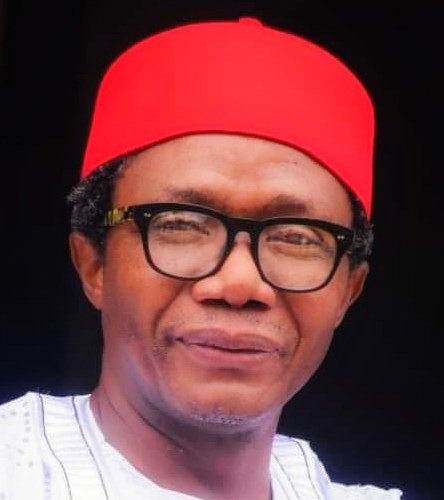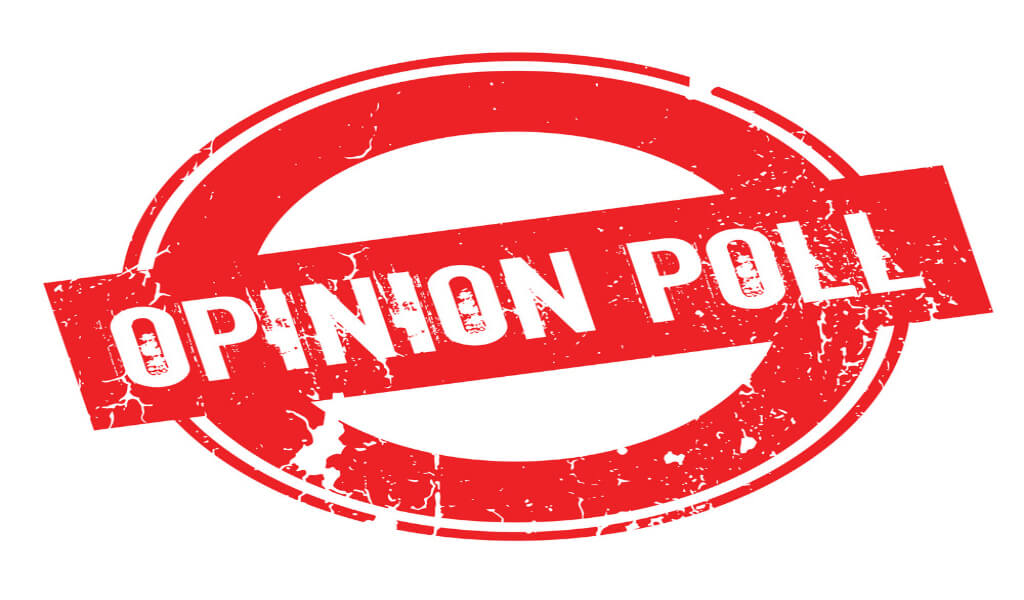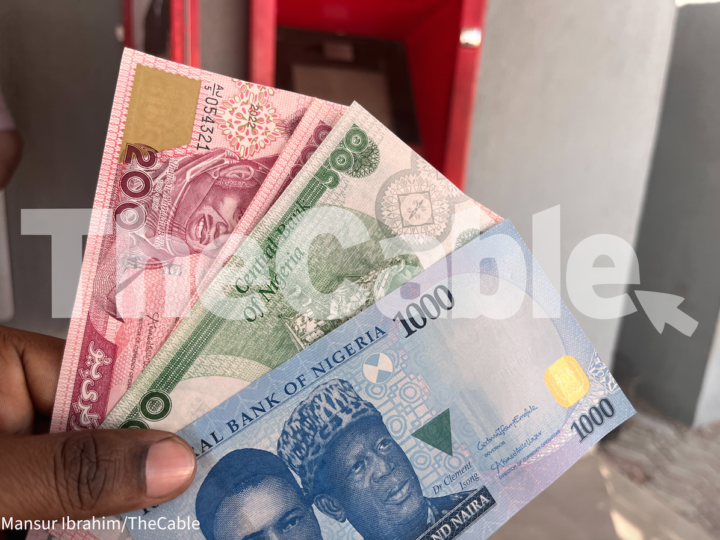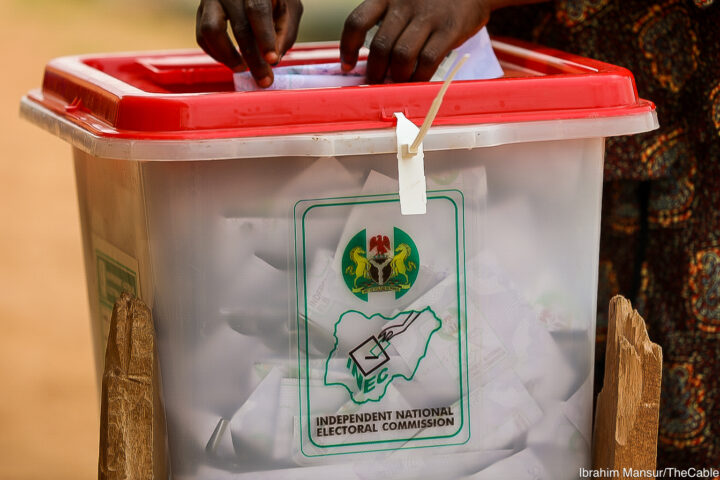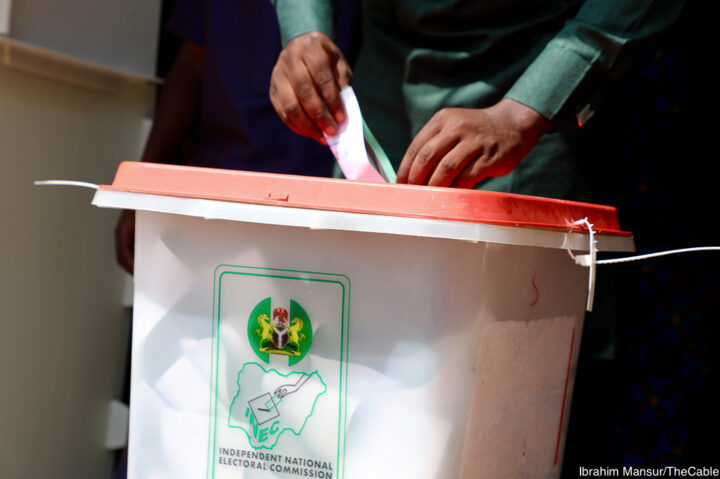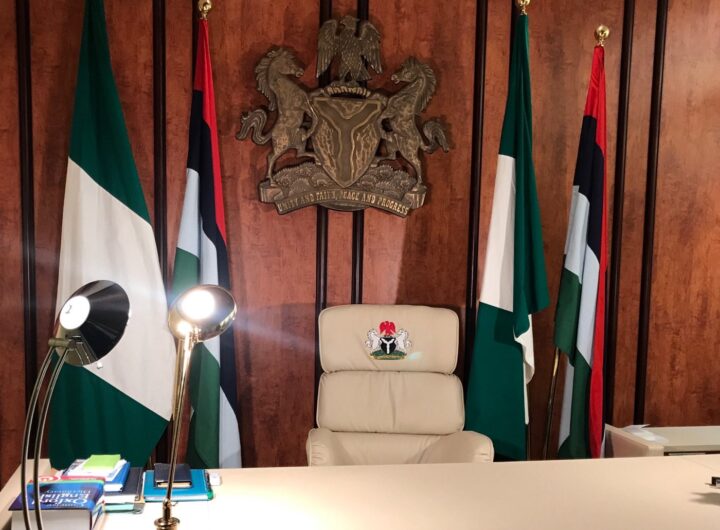Unknown to most people, Election polls are of two kinds: opinion polls and push polls. Opinion polls are usually designed to represent the opinions of a population by conducting a series of questions and then extrapolating generalities in ratio or within confidence intervals. A person who conducts polls is referred to as a pollster.
Opinion polls are often conducted by nonpartisan pollsters who are out to gauge the standings of political parties and candidates at various stages of an electoral contest, from its beginning to the end. The unbiased assessments help the public and the political parties and candidates to make adjustments, play the necessary catch-ups or consolidate where they have established meaningful mileages. These pollsters serve the general common good, not any political party or candidate.
Push poll on the other hand is a political marketing technique, most commonly employed during political campaigning, in which an individual or organisation attempts to influence prospective voters’ views by appearing as having conducted an opinion poll. In other words, the poll aims to drive a bandwagon effect by creating the impression that a particular political party or candidate is bound to win.
Unfortunately, all the polls in this presidential campaign are all push-polls and serve no useful purpose other than pushing the narrative that a particular candidate or political party is predestined to win. Apart from this narrative, there is also a more potent danger lying in wait in the aftermath of the election. If such a candidate sold to the public as having already won does not eventually emerge as the winner, allegations of rigging would become germane and justified and this is the real danger in Push polls.
Advertisement
Let’s go down memory lane. In the April 2011 presidential election, northern Nigeria was under the impression that General Muhammadu Buhari would emerge victorious. Nobody bothered to check out that such popularity of Muhammadu Buhari aka ‘Mai Gaskiya’ was actually a northern phenomenon. In that election, like two other presidential elections before that, Buhari won resoundingly in the north but failed woefully in the south.
Since the condition for the production of Nigeria’s president requires the candidate scoring 25% of the votes cast in at least 24 states of the federation, Buhari needed at least winning four southern states assuming he won the 19 northern states and the FCT. But he did not only lose in all the 17 southern states he also lost the northern states of Borno and Benue.
Meanwhile, in the push polls predicting the outcome of that presidential election, Buhari enjoyed rave reviews and his supporters who were mostly northern talakawas i.e. the masses were already celebrating Buhari’s victory in advance. So, when the presidential election results were announced and Dr Goodluck Jonathan was declared the winner, deadly election-related and communal violence erupted in northern Nigeria following that April 2011 presidential voting and left more than 800 people dead. The victims were killed in three days of rioting in 12 northern states, including 10 youth corps members whose dreams and lives were gruesomely cut short in the infernal riots.
Advertisement
A similar scenario is being set for the 2023 presidential election with over a dozen push polls sold to Nigerians as opinion polls and as true voter preferences of Nigerians. Though one or two polls favour two other leading candidates, namely, Atiku Abubakar and Bola Tinubu, 90% of others favour the candidate of the Labour party, Mr Peter Obi.
One has tried to subject these polls to integrity tests to be sure of their validity as genuine opinion polls. Virtually all of them came out as push polls. In any survey in which an opinion poll is typical, the validity and reliability of the research instrument are very fundamental. Validity simply refers to a test instrument measuring that which it claims to be measuring; whereas reliability refers to the test instrument being able to reproduce the same result over time and place. Both measures failed with most of the methodologies employed by these pollsters.
In research, particularly a survey or opinion polls, the methodology is key. A survey uses the result of a sample of a population to extrapolate or assume for the entire population. What this baseline means is that unless the sample is truly reprehensive, information or data obtained from it cannot be said to represent the entire population.
With this basic, elementary truth, how then can a sample of 200 or even 2,000 respondents speak for Nigeria’s 91 million registered voters? What is more, the 91 million Nigerian voting population is solidly demarcated in the south and north divides with distinct peculiarities and characteristics with such delineating variables as religion, ethnicity, education, age, internet access, and many more firmly rooted. These hard-core demographics that will play roles in their voting decisions must be present in the sample for it to make statistical sense and every serious researcher knows it.
Advertisement
Again, apart from internet access upon which most of these polls were based, the rural-urban divide is a striking uncompromising characteristic that will determine the awareness levels of election messaging in potential voters. There is no doubt that Nigerians who have access to the internet and electricity will be exposed more to election messaging, especially new messages on change or retention of the status quo.
Though Google search may give a lesser percentage, it is equally important to point out that well over 50% of Nigeria’s voting population is rural. Think of just two indices; internet and electricity. Officially, internet penetrability in Nigeria still stands at about 40% and electricity availability at about 20%. What these figures speak of is the staggering number of Nigerian citizens without access to the internet, telephony, and electricity to charge phones and listen to news via radio and television.
You can see that well over 50% of the nation’s voting population has no chance of being polled in any online polling or survey; nor are they aware of the messages that would aid informed decisions. This is what is accounting for the huge number of undecided voters despite the media frenzy about the election.
Nigeria is now made up of 176, 974 polling units and 8,812 wards. If we use these parameters, one can see the heavy concentrations of the nation’s rural dwellings even better. The urban centres in Nigeria where internet and electricity are fairly covered are the 774 LG headquarters, 36 state capitals, and the FCT. These give 1,000 urban centres in Nigeria and when doubled, it will be fair to assume over 6,000 wards in Nigeria are rural, without internet and electricity.
Advertisement
With this background, let us take a brief critical look at some of the polls, their outlier outcomes, and push poll characteristics. These are some of the push polls presented to Nigerians as opinion polls so far: NOI, We2geda, Bloomberg, Economist Intelligence Unit, and Nextier, etc. Though one or two of the polling firms are reputable, the sample size was as small as 200 in one case. Even the sample size of 1,000, and 2000 cannot fairly represent the 210 million Nigerian general population or 91 million Nigerian voters. Apart from the incurable problem of the respondents not being representative of these huge populations, most polled the general population, not actual registered voters. So, such polls at best are more of a popularity poll than an actual measure of voter intent.
One of the polling firms was formed only a year ago presumably on purpose and its poll was funded by some faceless curious foreign donors. Though the poll utilised a large sample size of 17,000 respondents, the pollsters decided to haphazardly poll about 22 per LGAs. Unfortunately, their methodology means their results are not statistically representative of any of the LGAs and cannot be extrapolated or said to be representative of the nation or registered voters.
Advertisement
The partisanship of some pollsters is so engrained and embarrassing that you find them as members of candidates’ campaign teams. As already stated, some did not poll the INEC voters register and most polls were conducted online and results were weighted using the outdated 2006 census demographics.
Let it also be noted, the use of not just an online poll but an online app means respondents would need to download the app, meaning the study likely polled urban and diaspora communities who are internet savvy.
Advertisement
Even where such polls are randomized and 1,000 random respondents are taken as being statistically representative, there must be evidence that the respondents covered the key components of the population as should be if the population were stratified, which wasn’t also the case. For me, any poll that’s not offline, and polling units- and wards-based is useless for the likelihood of shunting out up to 70% of Nigerians.
What’s more, one of the polls had no methodology at all or sample size even. Thus it reads either as an opinion of a political desk or fake news planted to shape public opinion.
Advertisement
One such push polls predicted that Atiku would place 3rd in Adamawa, his state, (which didn’t happen even when Buhari was an incumbent and candidate in 2019). Such outcomes are often dismissed as outliers in research and statistics, and such poll or research is repeated or better still, discarded. (An outlier is a single data point that goes far outside the average value of a group of statistics for being obtuse and extraordinarily outlandish).
Yet, they are being shoved down the throats of Nigerians as opinion polls thus preparing the ground for rejection of the presidential poll outcome as a product of rigging. Fact is: it is these pollsters that are rigging the outcome with the figments of imagination, which they are selling to a segment of Nigeria.
Let patriots beware so that the April 2011 post-election violence in which over 800 Nigerians avoidably perished does not repeat itself.
Mefor, a forensic/social psychologist, is a fellow of The Abuja School of Social and Political Thought and can be reached via 09130335723 or [email protected]. He tweets @DrLawMefor.
Views expressed by contributors are strictly personal and not of TheCable.
Add a comment
